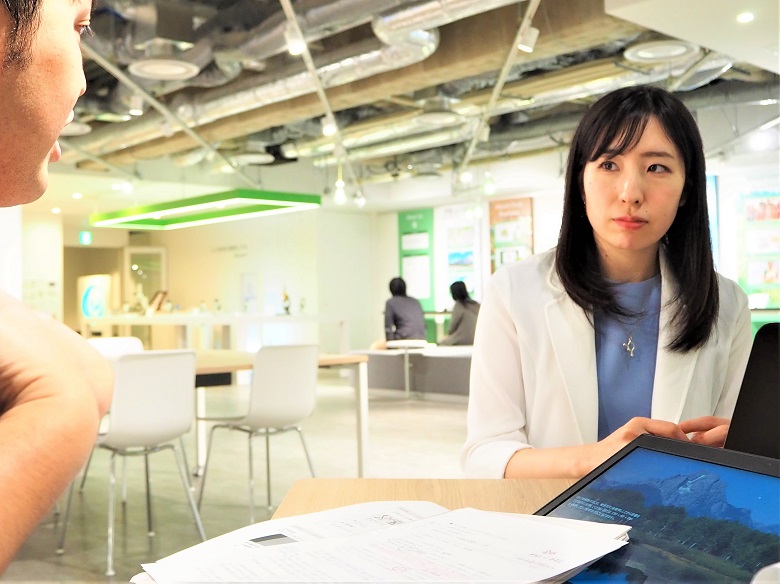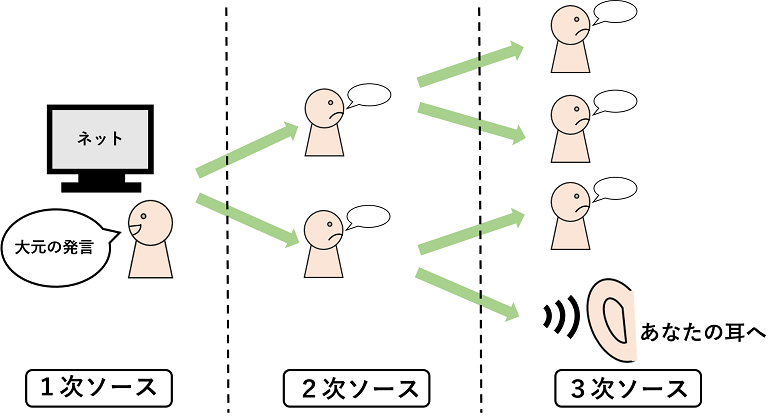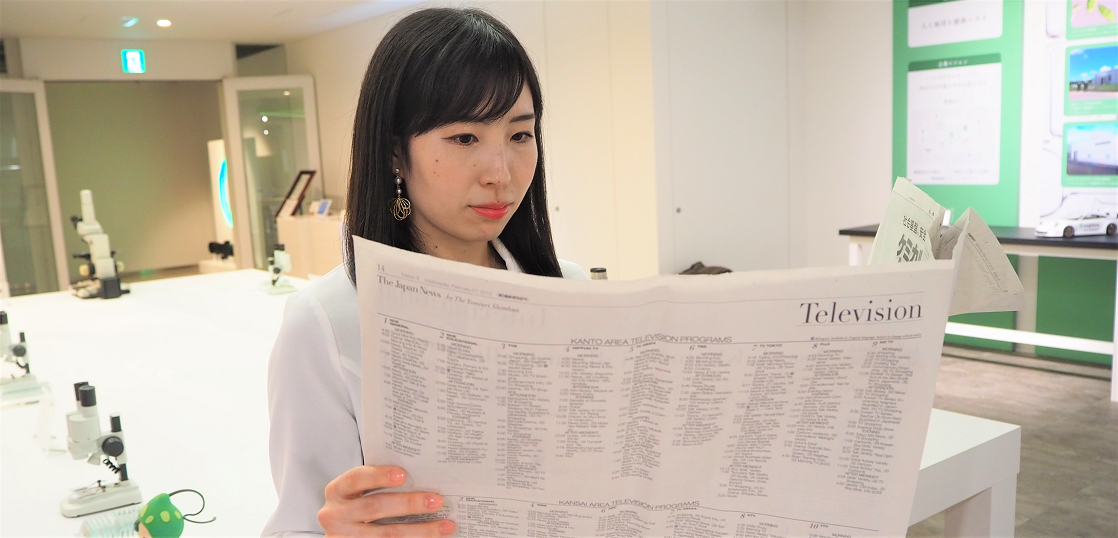日々進化するサイエンス。
その情報を正しくつかみ、自分のものにするには、サイエンス系ニュースを正しく読み解くことが大切になるでしょう。
今回は、「文系でも誤解しないサイエンス系ニュースの読み方」を題材にそのポイントを、ユーグレナ社執行役員/株式会社ジーンクエスト社長、そして生命科学者の高橋祥子が解説します。
(前回はこちら)
ニュースの読み方で重要な「情報源」とは?
―前編ではサイエンス系ニュースの読み方のポイント「1.因果関係」「2. 部分と全体」について解説いただきました。
最後に、3つ目の「情報源」はどういうことですか?
高橋:「情報源」に関して、当然といえば当然の話なのですが、端的に言えば情報の出どころがどこで、受け取っている情報が何次ソースのものかを把握する必要がある、ということです。自分が聞いた情報がどこから出ている話なのか、そして何人を経て耳に届いたものなのかということですね。
事例として、東京大学教養学部の卒業式の式辞にまつわる話があります。
これは、東京大学総長であった経済学者の大河内一男先生が、東京大学の卒業式の式辞において「『肥った豚よりも痩せたソクラテスになれ』と言った」と話したという話なのですが、この語り伝えについてはいくつかの間違いや誤解があるといわれています。
なかでも一番の大きな間違いは、実際の卒業式では大河内先生はこの「肥った豚よりも~」の部分を読み飛ばしていた、ということです。すなわち実際には発言されなかった。ではなぜ発言されなかったことが、発言したように語り伝わっているかというと、式辞原稿案には書き込まれていて、その原稿案が外部に出回り、それがそのまま報道されたためです。そのため、実際には起きてないことが「事実」として語り継がれたというものです。
これは珍しい例だと思いますが、いくつかのソースを介すことによって、事実は大きく変わりえます。私たちは、情報のリソースが何次ソースであるかに注意する必要があるのです。

―ないことがあったとなるのは珍しそうですが…とはいえありそうではありますね。。最近はWEBやSNSでの情報の拡散も早いので、何が大元か、何次ソースかは見えづらくなっている気がします。
高橋:そうですね。インターネットが普及したことにより、無自覚なコピペやリツイートも増えているかと思います。それにともない、情報のリソースが不明瞭なものになっているなと。
そして急速に発展したインターネットは、誰しもが情報発信者になることを可能にしました。このWEB時代の中で、情報源である1次ソースは何かをしっかり確認して、それを踏まえて情報を理解する必要があります。

とりわけサイエンス系ニュースに関しては、本当は元の研究内容や論文内容そのものを把握することが一番正しく理解することに近づくのですが、とはいえ、みんな忙しい生活の中でそのような時間は作りづらいと思います。
なので重要なのは、ニュースを能動的に自ら考えながら読み、「何かおかしいな」と思ったときに、1次ソースにアクセスできるように情報源を把握しておくことです。
なお、さらっと言いましたがニュースを「能動的に読み取っていくこと」、これはすごく重要です。
生体反応とは、刺激と受容体によって反応するものです。刺激が情報だとすると、受容体である人間が活性化しているか否かで、起こる反応も変わってきます。しっかりと考えて情報を読み取ると、得るものが変わってくるのです。考えること自体、とてもエネルギーを使うことなので、人々は考えることを避けがちです。しかし、考えることをしっかりと行うことで、他の刺激に対しても考えることができ、自分の世界をより広げることができます。
ニュースの読み方が変われば社会が変わる
―能動的にニュースを読む!確かにそれができれば、ニュースの内容理解が深まり、気づきが多くなる気がします。
ここまで、「因果関係」「部分と全体」「情報源」の3つのポイントを解説していただきました。このポイントに気を付けることで、ニュースを適切に理解することができ、個人の成長につながりますね。
適切にニュースを読むことができる人が増えると、社会にも良い影響があるのではないでしょうか?せっかくなのでおトク感を明確にしたく…。
高橋:この3つのポイントを押さえて、サイエンス系ニュースを読むようになると、読者がいい情報が得られるのはもちろんですが、結果としてテクノロジーが社会に適応しやすくなると思っています。
私が扱っている遺伝子解析もそうですが、テクノロジーはそれがあるだけでは意味がなく、社会に適応して初めて意味を成すものが多いです。例えば、遺伝子解析の否定的なニュースを見て、人々が「遺伝子解析は危ないものだ」という感想をもってしまったとしたら、それはテクノロジーの進歩と活用を妨げてしまいます。
そういった中で、みんなが正しくニュースを読み、テクノロジーに対して誤解をする人が減ることは、間違いなくテクノロジーを社会に適応させる助けになる。
そうして、良いものが適切に使われる社会になって欲しいなと思ってますね。
―テクノロジーは社会を良くするために、ということですね。そう思います。
ありがとうございました!
株式会社ユーグレナ 執行役員バイオインフォマテクス事業担当
/株式会社ジーンクエスト 代表取締役
高橋 祥子(たかはし しょうこ)
京都大学農学部卒業。2013年6月、東京大学大学院農学生命科学研究科博士課程在籍中に株式会社ジーンクエストを起業。2015年3月に博士課程修了、博士号を取得。個人向けに疾患リスクや体質などに関する遺伝子情報を伝えるゲノム解析サービスを行う。2018年4月株式会社ユーグレナ 執行役員バイオインフォマテクス事業担当 就任。
受賞歴に経済産業省「第二回日本ベンチャー大賞」経済産業大臣賞(女性起業家賞)受賞、第10回「日本バイオベンチャー大賞」日本ベンチャー学会賞受賞、世界経済フォーラム「ヤング・グローバル・リーダーズ2018」に選出など。
著書に「ゲノム解析は「私」の世界をどう変えるのか?-生命科学のテクノロジーによって生まれうる未来-」。
遺伝子解析プラットフォーム「ユーグレナ・マイヘルス」

